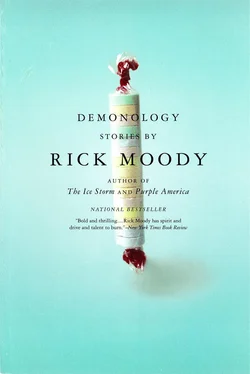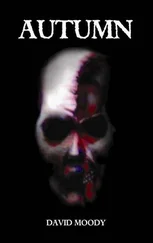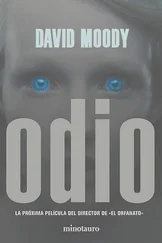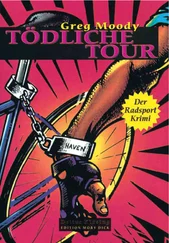M. J. slipped across the great divide of Madison, behind a police car drawing near. — You okay?
Anthony apparently knew from the block these kids who were driving the Camaro that had smacked the crosstown bus that had disgorged Mrs. Vincenzo, the bus which had formerly housed a dozen private school kids from the Catholic school uptown, Joey, is that your brothers car, does he know you took his car out like this, you’re out joyridingyou smack up your own brothers car? It was a customized car, too, and Joey was the younger brother of the guy at the corner grocery near her, the younger brother of the guy who owned the grocery who no longer much spoke to M. J., because, she suspected, she kept using the store address for parcel deliveries from the catalogues. One day when she strode in for a can of lentil soup, the guy and his wife were calling out to her from behind a wall of corrugated-cardboard shipping containers, from J. Crew and Tweeds, Miss Powell, could you please take some of these boxes over to your place, because were having trouble moving around in here, in the store. Blouses and sweaters and linen jackets and black leotards and jeans and swimsuits and hats. The younger brother, who had been loitering in an aisle near the canned goods, had volunteered to help carry her boxes. Joey. And Joey and his pal Mike were now out of the car (near a prone Mrs. Vincenzo) inspecting the front end, repeating their own decorous obscenities, pacing nervously.
Gerry got the idea for the gallery in a certain bar on Second Avenue. In Manhattan. They used to go there after thesis recitals at Tisch. One girls performance involved a relation to dirty laundry; she had brought out a laundry bag and put on a tape of a song featuring miserably chortling synthesizers, and, amid kinesthetic combinations that resembled the process of giving birth, she scattered laundry across the stage, halter tops, underwear, tights. No dry-clean-only items. It was after this piece that Gerry got the idea. Probably soon after. He had moved in, she had just invited him to move in, and he remarked that the gallery scene in the East Village had been indispensable, and with so many musicians living in Hoboken now, so many artists, there was a real scene, there was Maxwell’s and there were all these bands, and things were really happening, it was the right time for a gallery, in Hoboken, a gallery, a samizdat kind of thing, that would reflect the local artists, like there were definitely some great artists out there, and there was all the loft space, and they could sort of serve as a hub, a nexus, for all of these artists, and maybe there would be a Hoboken style, like there was southwestern style. M. J. had taken some art history courses in school; she’d taken this one course where, on the final exam, she’d compared Piet Mondrian’s reduction of the vocabulary of classical painting to the way a student on a final exam attempts to reduce the movement and vocabulary of the semester’s work down to a single essay question, and she had received an A for the paper and therefore for the term. She then elected to reuse this idea, a semester later, for the mid-term on the Abstract Expressionists and Their Era, this time receiving a C minus. Where the hell was Gerry, while policemen hovered over Mrs. Vincenzo like the mob in deposition paintings; while Joey and Mike argued with the driver of the crosstown bus; while the children who’d been on the bus were spilling out onto the street, Five dollars on the black lab! That’s not a lab! Gerry didn’t know too many artists. He’d dated a woman from Barnard who painted portraits of her wealthy family in the style of court paintings from the fifteenth and sixteenth centuries and he’d approached her for the Mad Son Electric Opening Gala. M. J.’s cousin Nicky Jarrett, who’d gone to Cooper Union and who specialized in sculptures featuring balloons with smiley faces on them — shunts and fuses and tubes housing balloons which then inflated and uninflated, circularly — had also refused. The artists she’d known years before were not artists anymore. They were graphics designers. What was art, but something that you could get into a bank lobby, or something that a large law firm or junk-bond brokerage boutique acquired through a committee on decorations to sell later at a profit; or, as Nijinsky said, Ifelt disgust and therefore could not finish the ballet. The Mad Son Electric Gallery had made more progress with the Hoboken Reporter, in terms of media penetration, than it had made with the artists who might show upon its walls. Gerry had begun to call frantically around town asking if anyone knew any artists at all who worked in Hoboken, any artists who worked in the loft spaces over in the midtown section of Hoboken near the projects, and sometimes, at dusk, he wandered the streets, gazing in windows.
In the meantime, M. J.’s studies in physiognomy and sports medicine and the Alexander Technique made her ideal for the diagnosis of Anthony Somebody’s ankle sprain. His large, homely ankle was up on her thigh, and she was pulling delicately on it, examining. Anthony’s eyes: woeful, as though he’d been driven off twenty yards from some game of boys, lifelong, watching myopically from a distance, as boys called out, No fat kids allowed.
— A sprain is basically a pulled tendon. Diagnosed by a history. Ever sprain it before? Rest, ice, compression, and elevation. That’s your road to recovery. After the swelling goes down after a couple of days, you should do range-of-motion exercises, like balancing on the affected foot. Or you could try tracing letters of the alphabet, easy ones first. H. Or L. That way you avoid joint instability.
— If you could just help me get up on my feet, Anthony said.
He was worried and distant.
— I’m not sure you should be walking on it. That’s what I’m saying, M. J. said. — I mean, you probably don’t have a fracture, because that would be obvious. I saw a girl fracture her leg once.
Anthony wrestled his foot out of her control. He began to stand.
— Joey, get your butt over here, Anthony called.
— The Camaro in the eighties will never be like the Camaro in the seventies, Joey was mumbling.
— Or what about that ’67? With the V-8 and the 350 cubic inches, Mike, his friend, observed. — Sweet on that.
— Parts. That’s your whole problem.
— Something goes bad.
— Look, I’m leaking.
— Oil pan. Definitely.
— Joey!
A policeman sauntered over, from where Mrs. Vincenzo lay upon a bier of shattered glass; the sun dipped below the rim of Union City; M. J. plucked off her sunglasses; holiday lights, blinking holiday strings, which Gerry had laboriously hung in the window of the Mad Son Electric Gallery, were by timer engaged, and in these lights it became clear that the dogs had disappeared, had fled; and so the way to the gallery was free, and the interpenetration of all these people, all these events, caused by dogs, seemed for the moment to be just a mistake of interpretation, nothing more. M. J. felt better. She could just go inside now and get busy with arranging soft drinks (the case of wine was already inside), cheeses, and maybe these pratfalls of the afternoon would be part of the coverage of the Mad Son Electric Opening Gala: an old woman on a walker stretched out flat on Madison Street, her voice declaiming irritably on the matter of sciatica, a car totaled on the rear of the crosstown bus, kids sitting out on a sidewalk with a portable radio blasting a tune about basketball sneakers, Hispanic men getting out of cars trapped in the snarl up the block, car horns like monarchical cornets, because of dogs. Joey and Mike, wearing black tour T-shirts, each with a long, narrow ponytail snaking down his back, hoisted Anthony to his feet. All M. J. had to do was open the door to the building. She was tired. An ambulance came up the block from the wrong direction. Its muffled siren. And before her in the street lay a pristine bottle of orange soda. She scooped it up and went back to make a gift of it to Anthony.
Читать дальше












